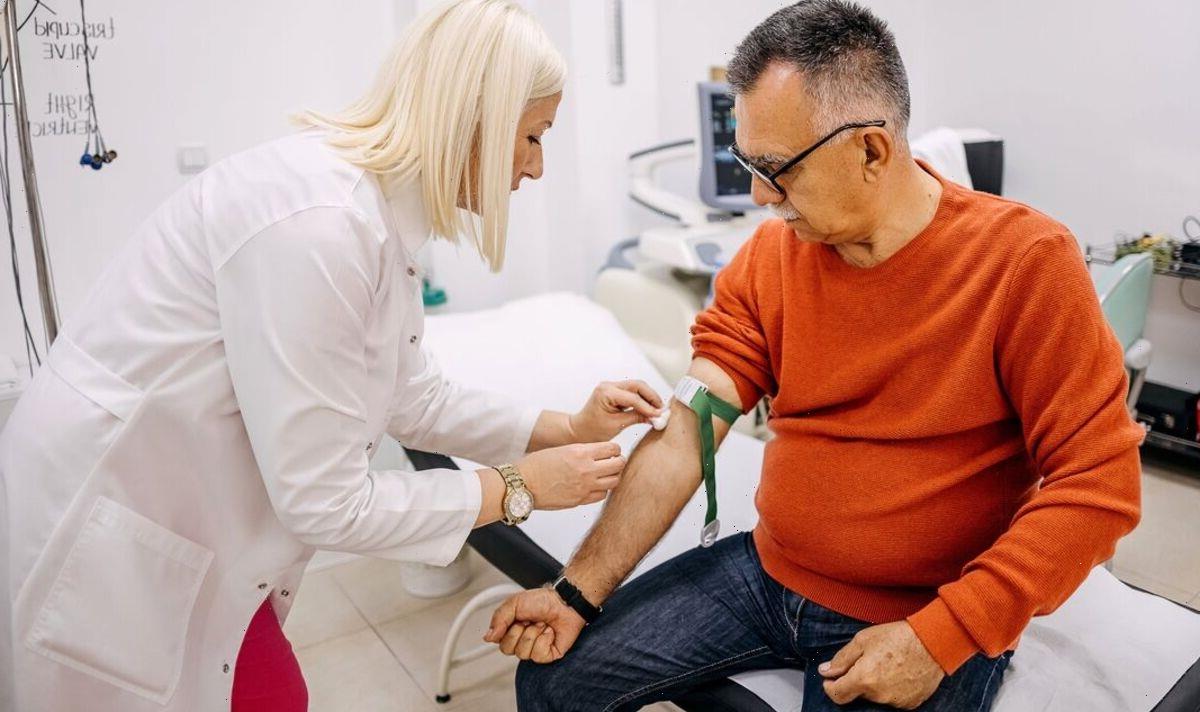Prostate cancer: Dr Amir discusses new PSE screening test
We use your sign-up to provide content in ways you’ve consented to and to improve our understanding of you. This may include adverts from us and 3rd parties based on our understanding. You can unsubscribe at any time. More info
PSA testing has resulted in numerous unnecessary biopsies in men with no cancer, the researchers say. And, for some men who do have cancer, the PSA test could have provided “false reassurance”. Dr Jon Burrows, chief executive at Oxford Biodynamics, said: “There is a clear need in everyday clinical practice for a highly accurate blood test that can screen men for prostate cancer.”
The researcher highlighted the need for a blood test that “accurately identifies those at risk, while sparing those who up to now would be subject to unnecessary, expensive and invasive procedures”.
A collaboration between Oxford BioDynamics, Imperial College and the University of East Anglia (UEA) found that a new blood test is a better diagnostic tool than PSA testing.
“This new PSE test is accurate, rapid, minimally invasive and inexpensive,” the research team noted.
A pilot study of 147 cancer patients were evaluated with the new PSE test, which produced accurate results 94 percent of the time.
READ MORE: Smell that? Seven warning signs that can help uncover ‘difficult to spot’ bed bugs

The next stage of the research study will be to use the test on a group of men whose cancer status is unknown.
“If successful in larger trials, it may significantly improve prostate cancer diagnosis,” the team added.
Professor Dmitry Pshezhetskiy, from UEA’s Norwich Medical School, said: “Prostate cancer is the most common cancer in men and kills one man every 45 minutes in the UK.
“There is currently no single test for prostate cancer, but PSA blood tests are among the most used, alongside physical examinations, MRI scans and biopsies.
“However, PSA blood tests are not routinely used to screen for prostate cancer, as results can be unreliable.”
Professor Pshezhetskiy added: “Only about a quarter of people who have a prostate biopsy due to an elevated PSA level are found to have prostate cancer.
“There has therefore been a drive to create a new blood test with greater accuracy.
“When tested in the context of screening a population at risk, the PSE test yields a rapid and minimally invasive prostate cancer diagnosis with impressive performance.”
READ MORE: The ‘anti-cancer’ spice that could help shed visceral fat in ‘weeks’ – study

He concluded: “This suggests a real benefit for both diagnostic and screening purposes.”
Prostate cancer symptoms
When the cancerous tumour is small, there are typically no symptoms of prostate cancer.
Yet, when the tumour has grown large enough to press onto the urethra – the tube that carries urine from the bladder – then symptoms could appear.
The NHS lists possible symptoms of prostate cancer to be aware of, which includes:
- Needing to pee more frequently, often during the night
- Needing to rush to the toilet
- Difficulty in starting to pee (hesitancy)
- Straining or taking a long time while peeing
- Weak flow
- Feeling that your bladder has not emptied fully
- Blood in urine or blood in semen.

These symptoms can also appear as a man ages, due to a non-cancerous condition called an enlarged prostate.
Yet, to know whether it’s a harmful or more serious condition that is triggering symptoms, it’s best to book a doctor’s appointment.
“Treatment for prostate cancer will depend on your individual circumstances,” the NHS adds.
The research findings have been published in the journal Cancers.
Source: Read Full Article
